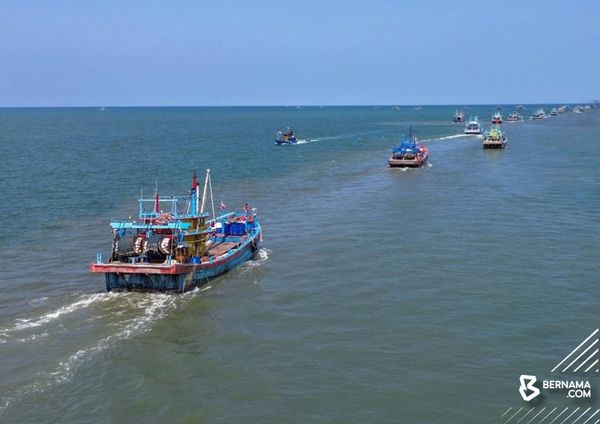PUTRAJAYA, Dec 12 — The Cabinet has agreed in principle to form a committee involving various ministries and agencies to develop a deep-sea fishing cooperation model between Malaysia and Vietnam, said Home Minister Datuk Seri Saifuddin Nasution Ismail.
The decision followed the outcomes of a meeting between Prime Minister Datuk Seri Anwar Ibrahim and the Communist Party of Vietnam's Secretary General of the Central Committee Tô Lâm, during the latter's visit to Malaysia last November.
Both leaders expressed their commitment to exploring collaboration in the fishing and maritime industries during the visit.
"We want to find the best model to enable both countries to share expertise and experience (relating to) deep sea fishing technology. Then we will be able to run a joint operation that will benefit both parties," he told a press conference after the ministry's monthly assembly, attended by the ministry's secretary-general Datuk Awang Alik Jeman.
Saifuddin also mentioned an existing fisheries cooperation model between Morocco and the European Union (EU).
"Through this agreement, Spain, as an EU member state, can fish in Morrocan waters... this is a win-win model," he said.
In another development, Saifuddin called on the Malaysian Maritime Enforcement Agency (MMEA) to continuously enhance the competence of its personnel by strengthening international networks and improving asset capabilities to safeguard the country's maritime borders and security.
As an agency that plays an important role in monitoring the country's waters, which span nearly 590,000 square kilometres, MMEA faces various threats including smuggling activities, illegal immigrants, as well as the intrusion of foreign ships.
"Given the complexity of its responsibilities, Maritime Malaysia, with a workforce of 5,400 personnel, must consistently improve the competence of its members. Additionally, the agency should continue fostering cooperative relationships and networks with similar agencies from other countries, which are currently progressing well.
“Effective border control requires cooperation in capacity building and intelligence sharing," he said, adding that by strengthening international capabilities and collaboration, Malaysia aims to reduce threats to its territorial sovereignty while maximising the sustainable use of marine resources.
The ministry will support MMEA in enhancing its asset capabilities, including monitoring the progress of the construction of two more Offshore Patrol Vessels (OPVs), expected to be delivered within the next two years.
In April, the minister said the construction of OPV 2 was 75 per cent complete, while OPV 3 was more than 50 per cent complete.
— Bernama


